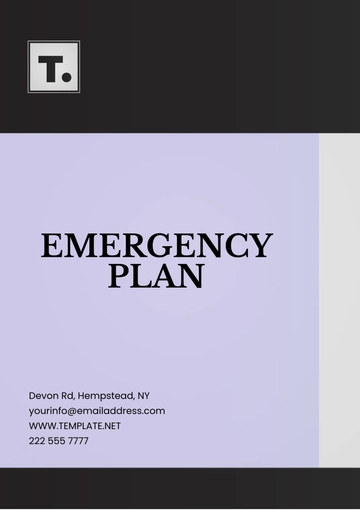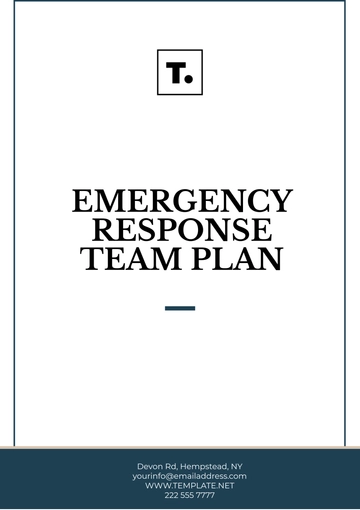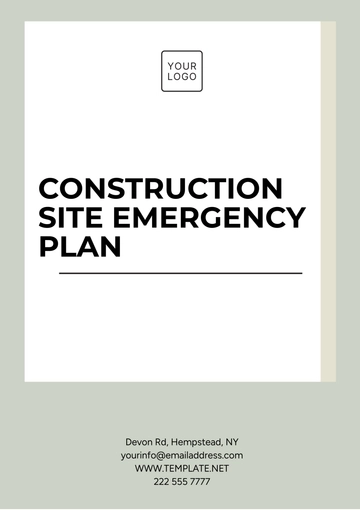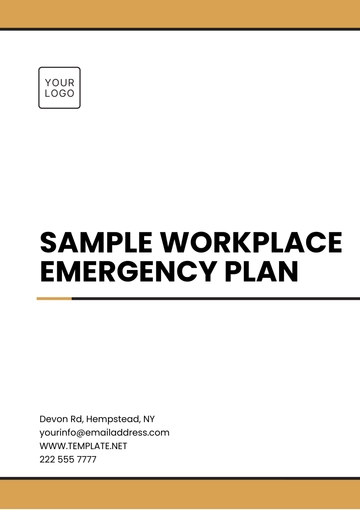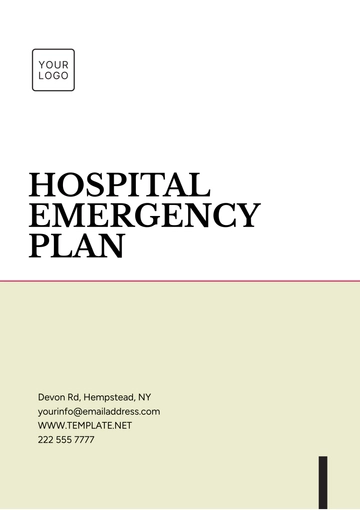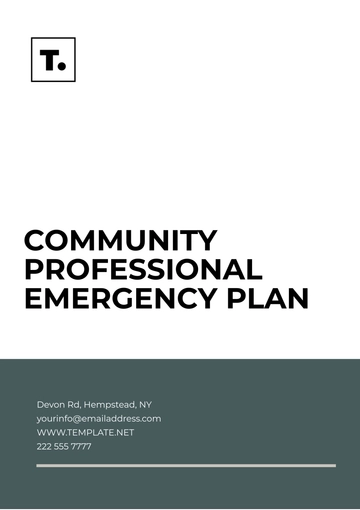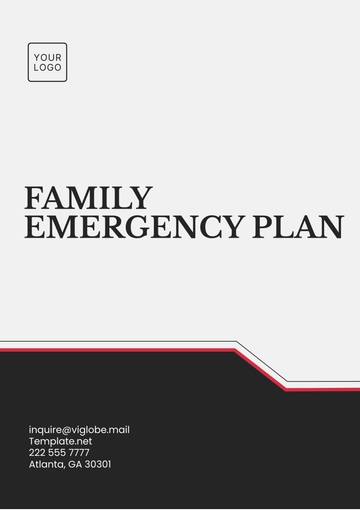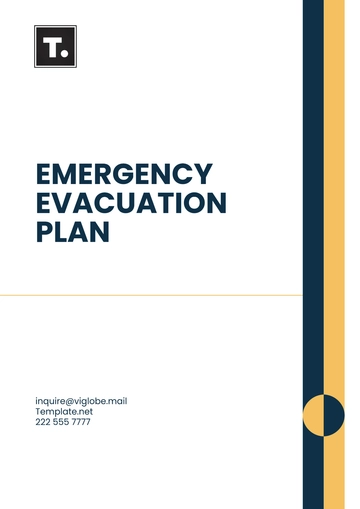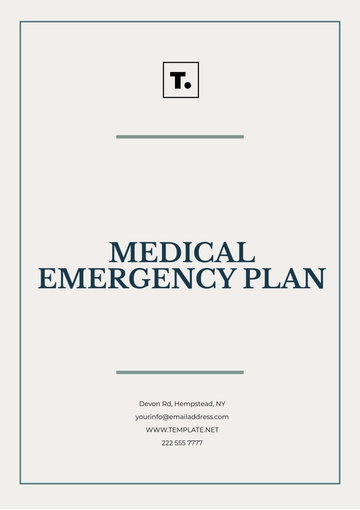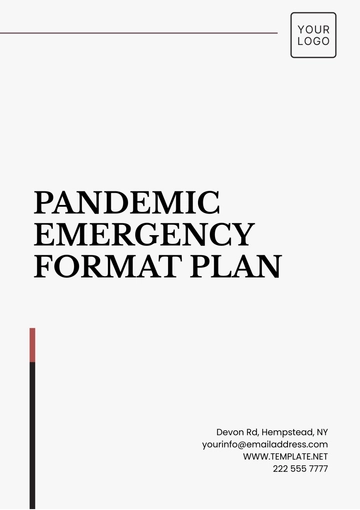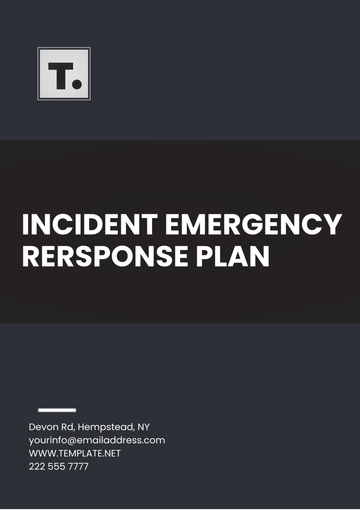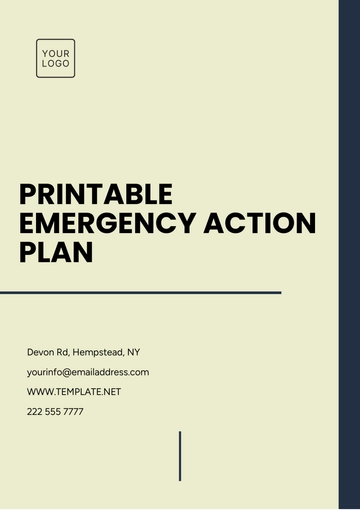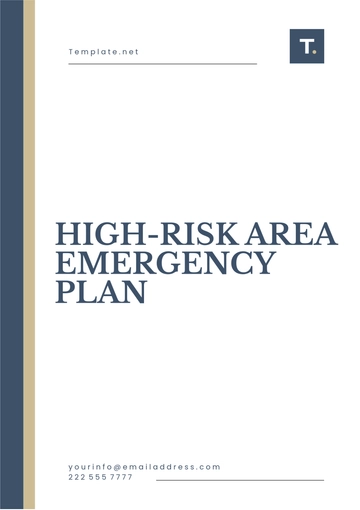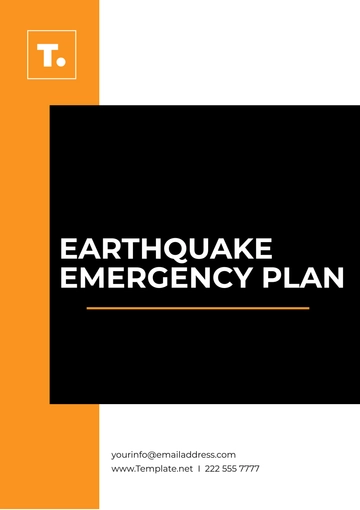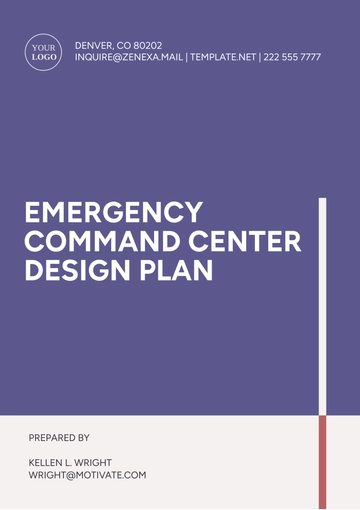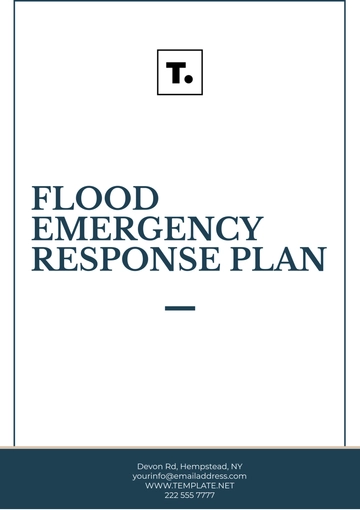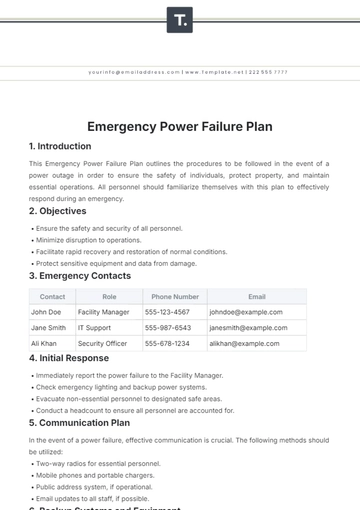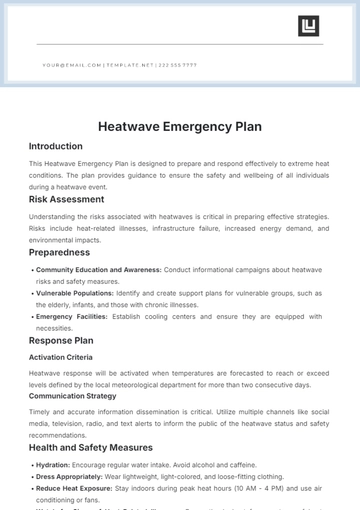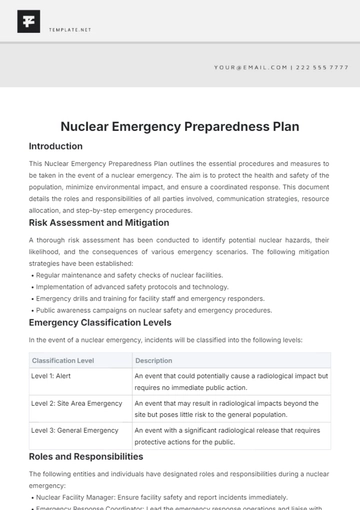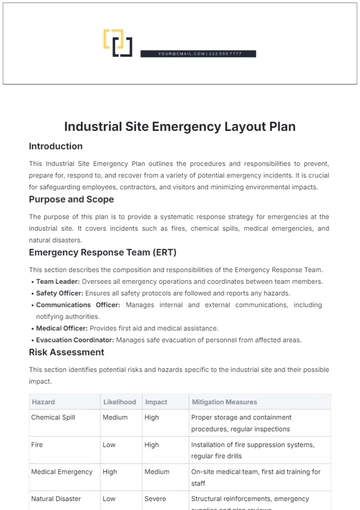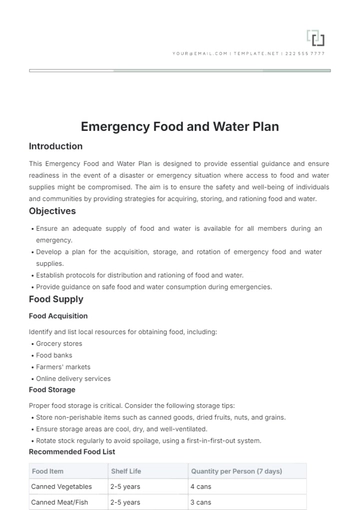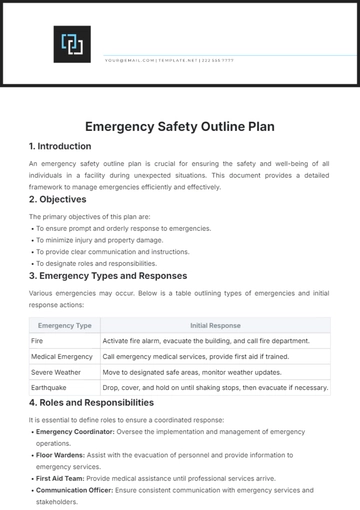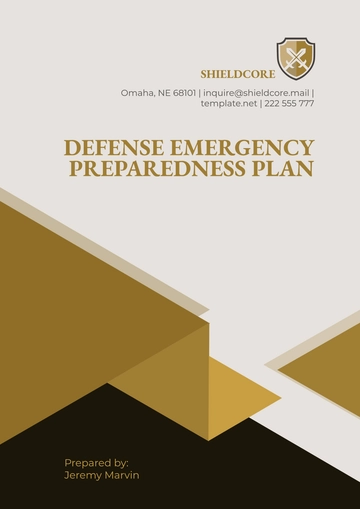Free Heatwave Emergency Plan
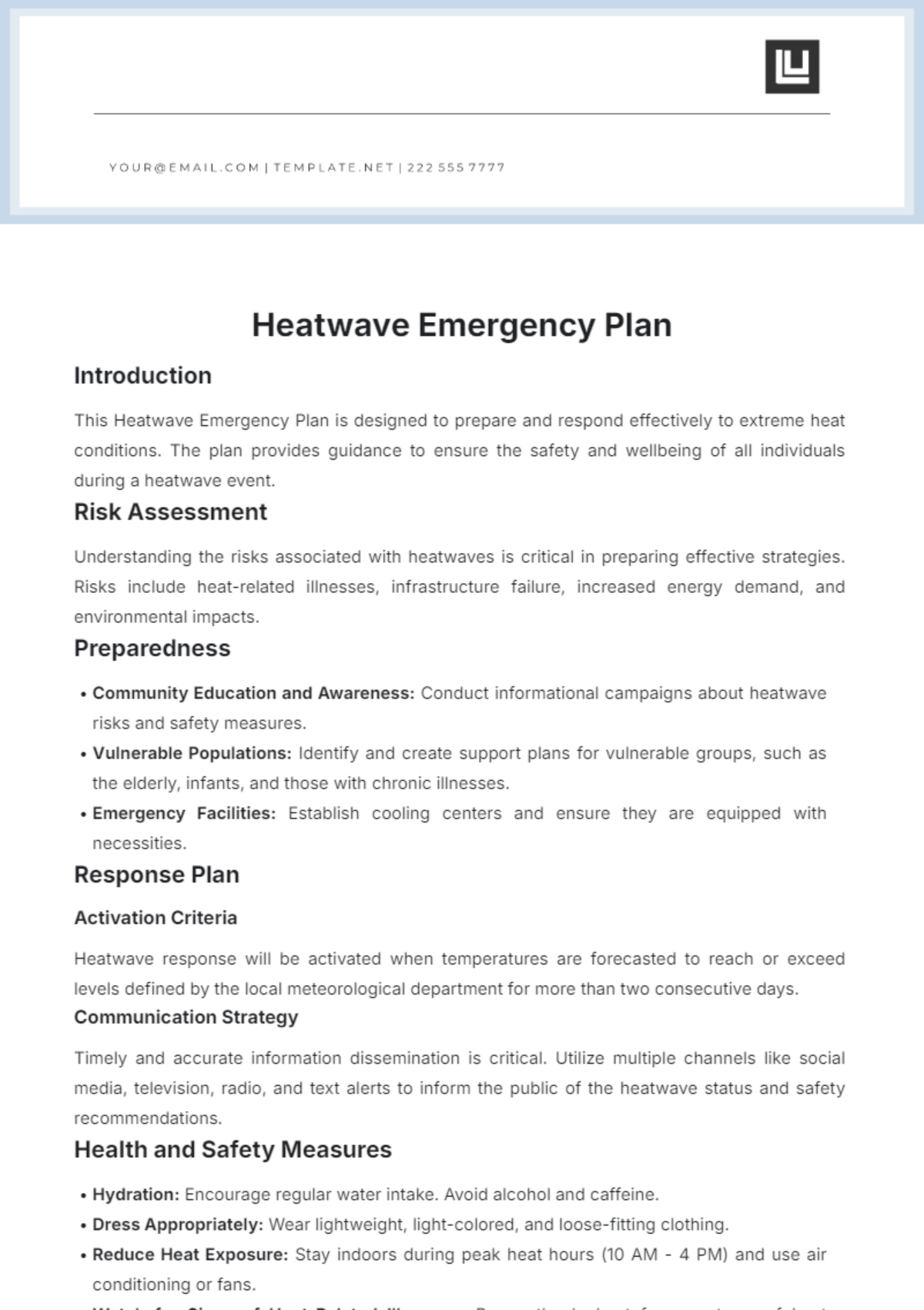
Introduction
This Heatwave Emergency Plan is designed to prepare and respond effectively to extreme heat conditions. The plan provides guidance to ensure the safety and wellbeing of all individuals during a heatwave event.
Risk Assessment
Understanding the risks associated with heatwaves is critical in preparing effective strategies. Risks include heat-related illnesses, infrastructure failure, increased energy demand, and environmental impacts.
Preparedness
Community Education and Awareness: Conduct informational campaigns about heatwave risks and safety measures.
Vulnerable Populations: Identify and create support plans for vulnerable groups, such as the elderly, infants, and those with chronic illnesses.
Emergency Facilities: Establish cooling centers and ensure they are equipped with necessities.
Response Plan
Activation Criteria
Heatwave response will be activated when temperatures are forecasted to reach or exceed levels defined by the local meteorological department for more than two consecutive days.
Communication Strategy
Timely and accurate information dissemination is critical. Utilize multiple channels like social media, television, radio, and text alerts to inform the public of the heatwave status and safety recommendations.
Health and Safety Measures
Hydration: Encourage regular water intake. Avoid alcohol and caffeine.
Dress Appropriately: Wear lightweight, light-colored, and loose-fitting clothing.
Reduce Heat Exposure: Stay indoors during peak heat hours (10 AM - 4 PM) and use air conditioning or fans.
Watch for Signs of Heat-Related Illnesses: Be on the lookout for symptoms of heat exhaustion and heat stroke. Seek medical attention if symptoms escalate.
Resource Allocation
Resource Type | Details |
|---|---|
Water Supplies | Ensure distribution points are stocked and operational throughout the community. |
Cooling Centers | Location and operation schedule of centers to be publicized and accessible. |
Medical Support | Coordinate with hospitals and clinics to prepare for potential heat-related illnesses. |
Recovery Plan
Once the heatwave has subsided, conduct an assessment of impacts and response effectiveness. Evaluate infrastructure damages, and initiate restoration processes for impacted community services.
Evaluation and Updates
After conducting the recovery assessment, update the Heatwave Emergency Plan as necessary to improve readiness for future events. Engage community feedback to refine the overall strategy.
- 100% Customizable, free editor
- Access 1 Million+ Templates, photo’s & graphics
- Download or share as a template
- Click and replace photos, graphics, text, backgrounds
- Resize, crop, AI write & more
- Access advanced editor
Prepare your organization for extreme weather events with the Heatwave Emergency Plan Template. This customizable template allows you to create a tailored action plan to ensure the safety of your team. Easily downloadable and printable, it offers convenience for quick access in emergencies. Moreover, it’s editable in our AI Editor Tool, making modifications simple and efficient.
You may also like
- Finance Plan
- Construction Plan
- Sales Plan
- Development Plan
- Career Plan
- Budget Plan
- HR Plan
- Education Plan
- Transition Plan
- Work Plan
- Training Plan
- Communication Plan
- Operation Plan
- Health And Safety Plan
- Strategy Plan
- Professional Development Plan
- Advertising Plan
- Risk Management Plan
- Restaurant Plan
- School Plan
- Nursing Home Patient Care Plan
- Nursing Care Plan
- Plan Event
- Startup Plan
- Social Media Plan
- Staffing Plan
- Annual Plan
- Content Plan
- Payment Plan
- Implementation Plan
- Hotel Plan
- Workout Plan
- Accounting Plan
- Campaign Plan
- Essay Plan
- 30 60 90 Day Plan
- Research Plan
- Recruitment Plan
- 90 Day Plan
- Quarterly Plan
- Emergency Plan
- 5 Year Plan
- Gym Plan
- Personal Plan
- IT and Software Plan
- Treatment Plan
- Real Estate Plan
- Law Firm Plan
- Healthcare Plan
- Improvement Plan
- Media Plan
- 5 Year Business Plan
- Learning Plan
- Marketing Campaign Plan
- Travel Agency Plan
- Cleaning Services Plan
- Interior Design Plan
- Performance Plan
- PR Plan
- Birth Plan
- Life Plan
- SEO Plan
- Disaster Recovery Plan
- Continuity Plan
- Launch Plan
- Legal Plan
- Behavior Plan
- Performance Improvement Plan
- Salon Plan
- Security Plan
- Security Management Plan
- Employee Development Plan
- Quality Plan
- Service Improvement Plan
- Growth Plan
- Incident Response Plan
- Basketball Plan
- Emergency Action Plan
- Product Launch Plan
- Spa Plan
- Employee Training Plan
- Data Analysis Plan
- Employee Action Plan
- Territory Plan
- Audit Plan
- Classroom Plan
- Activity Plan
- Parenting Plan
- Care Plan
- Project Execution Plan
- Exercise Plan
- Internship Plan
- Software Development Plan
- Continuous Improvement Plan
- Leave Plan
- 90 Day Sales Plan
- Advertising Agency Plan
- Employee Transition Plan
- Smart Action Plan
- Workplace Safety Plan
- Behavior Change Plan
- Contingency Plan
- Continuity of Operations Plan
- Health Plan
- Quality Control Plan
- Self Plan
- Sports Development Plan
- Change Management Plan
- Ecommerce Plan
- Personal Financial Plan
- Process Improvement Plan
- 30-60-90 Day Sales Plan
- Crisis Management Plan
- Engagement Plan
- Execution Plan
- Pandemic Plan
- Quality Assurance Plan
- Service Continuity Plan
- Agile Project Plan
- Fundraising Plan
- Job Transition Plan
- Asset Maintenance Plan
- Maintenance Plan
- Software Test Plan
- Staff Training and Development Plan
- 3 Year Plan
- Brand Activation Plan
- Release Plan
- Resource Plan
- Risk Mitigation Plan
- Teacher Plan
- 30 60 90 Day Plan for New Manager
- Food Safety Plan
- Food Truck Plan
- Hiring Plan
- Quality Management Plan
- Wellness Plan
- Behavior Intervention Plan
- Bonus Plan
- Investment Plan
- Maternity Leave Plan
- Pandemic Response Plan
- Succession Planning
- Coaching Plan
- Configuration Management Plan
- Remote Work Plan
- Self Care Plan
- Teaching Plan
- 100-Day Plan
- HACCP Plan
- Student Plan
- Sustainability Plan
- 30 60 90 Day Plan for Interview
- Access Plan
- Site Specific Safety Plan
